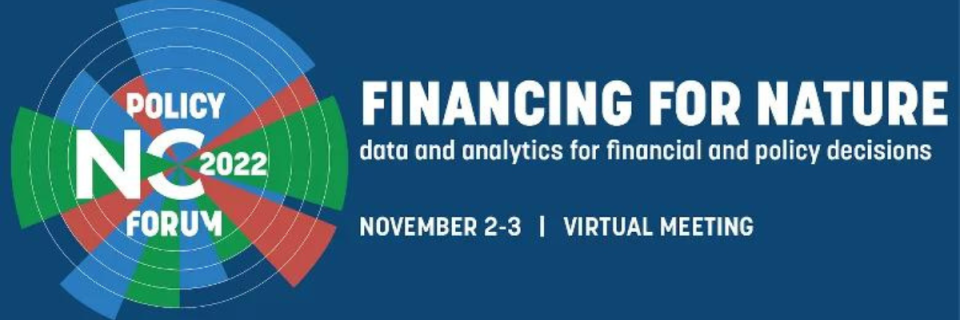6th Policy Forum on Natural Capital focuses on good data and better communications for financing for nature

Nature and biodiversity took frontstage at the 6th Policy Forum on Natural Capital Data for Better Decision-making, which took place online from 2-3 November 2022. Co-organized by the World Bank Global Programme on Sustainability (GPS) and the United Nations Statistics Division (UNSD), the forum brought together around 500 data providers, statisticians, policy makers and investors from low, middle and high income countries to discuss how best to incorporate data on natural capital into investment and policy decisions.
The opening session panelists emphasized the critical role of natural capital data in financing for nature. Jean Pesme, Global Director, Finance, in Finance, Competitiveness & Innovation Global Practice at the World Bank, highlighted opportunities for channelling money to sectors that are supportive of nature ("financing green"). Maria-Francesca Spatolisano, Assistant Secretary-General of the United Nations Department of Economic and Social Affairs, described the development of natural capital information systems by governments for investment and policy decisions, particularly the System of Environmental Economic Accounting (SEEA), an international statistical standard for natural capital accounting that was adopted by the United Nations Statistical Commission which has been implemented in 90 countries. Finally, Lee White, Minister of Water, Forests, the Sea and Environment for Gabon, pointed to the potential of tools such as climate resilience funds to promote sustainable investment and maintain natural capital.
The role of the private and public sectors in financing for nature
The first day of discussions included representatives from standard setting and investing organizations, ministries of finance, banks and international organizations. and discussed the role of the private sector. Panelists emphasized a growing desire on the part of the private sector to better understand their dependence on nature, the need for reliable data on risks, and the importance of standardized metrics, frameworks and disclosure requirements. Risk mitigation and outcome-based payments were identified as potential approaches for scaling up finance.
Day 2 featured speakers from international organizations, ministries of finance and public sector financial reporting bodies. Panelists discussed opportunities for policymakers and public institutions to shape an enabling environment for natural capital investment. The use of the SEEA framework for natural capital accounting for accelerating finance for nature was discussed; strengthening a broad coalition for financing for nature and increasing communication between data producers and users from the inception of data production were identified as important action areas.
Finding a way forward
In the closing session of the Forum, Valerie Hickey, Global Director of Environment, Natural Resources and the Blue Economy at the World Bank, underlined the importance of better understanding and communicating the availability of existing data, as well as the gaps, to reduce fragmentation in efforts towards increasing financing for nature.
Stefan Schweinfest, Director of UNSD, noted the need for capacity building, particularly among developing countries, and improving communications between data producers and users across low, middle and high income countries.
